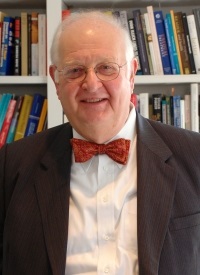Professor Sir Angus Deaton Presents Randomized Controlled Trials (joint with Nancy Cartwright)
This talk argues that RCT are frequently misunderstood. Misunderstandings include the belief that randomization provides a fair test by equalizing everything but the treatment, that randomization is required to solve selection problems, that lack of blinding does little to compromise inference, and that statistical inference in RCTs is straightforward because it requires only the comparison of two means. The lack of connection between RCTs and other scientific knowledge makes it hard to use them outside of the exact context in which they are conducted yet, provided they are combined with other methods, including conceptual and theoretical development, they can play a role in building cumulative knowledge to discover not “what works,” but why things work.
Thursday, April 27, 2017
6:00 PM- 7:30 PM
RGL 101, University of Southern California
A cocktail reception will be held prior to the event in Franklin Courtyard (between RGL and VPD) from 5-6:00 PM
6:00 PM- 7:30 PM
RGL 101, University of Southern California
A cocktail reception will be held prior to the event in Franklin Courtyard (between RGL and VPD) from 5-6:00 PM
To attend RSVP here (code: RCT)
RSVP by Wednesday, April 25
RSVP by Wednesday, April 25
 Professor Sir Angus Deaton was recently named a Presidential Professor of Economics at the USC Dornsife College of Letters, Arts and Sciences. He is also a Senior Scholar and the Dwight D. Eisenhower Professor of Economics and International Affairs Emeritus at the Woodrow Wilson School of Public and International Affairs and the Economics Department at Princeton University. His main current research areas are in poverty, inequality, health, wellbeing, economic development, and randomized controlled trials.
Professor Sir Angus Deaton was recently named a Presidential Professor of Economics at the USC Dornsife College of Letters, Arts and Sciences. He is also a Senior Scholar and the Dwight D. Eisenhower Professor of Economics and International Affairs Emeritus at the Woodrow Wilson School of Public and International Affairs and the Economics Department at Princeton University. His main current research areas are in poverty, inequality, health, wellbeing, economic development, and randomized controlled trials.
He holds both American and British citizenship. In Britain, he taught at Cambridge University and the University of Bristol. He is a corresponding Fellow of the British Academy, an Honorary Fellow of the Royal Society of Edinburgh, a Fellow of the Econometric Society and, in 1978, was the first recipient of the Society’s Frisch Medal. He was President of the American Economic Association in 2009. In 2012, he was awarded the BBVA Foundation Frontiers of Knowledge Award. In April 2014, he was elected a member of the American Philosophical Society. He was elected a member of the National Academy of Sciences on April 28, 2015. He was the recipient of the 2015 Sveriges Riksbank Prize in Economic Sciences in Memory of Alfred Nobel. In 2016, he was made a Knight Bachelor for his services to economics and international affairs.
His current research focuses on the determinants of health in rich and poor countries, as well as on the measurement of poverty and inequality in the US, India and around the world. He also maintains a long-standing interest in the analysis of household surveys. He is also interested in what randomized controlled trials can and cannot do.
- Event Date
- Location